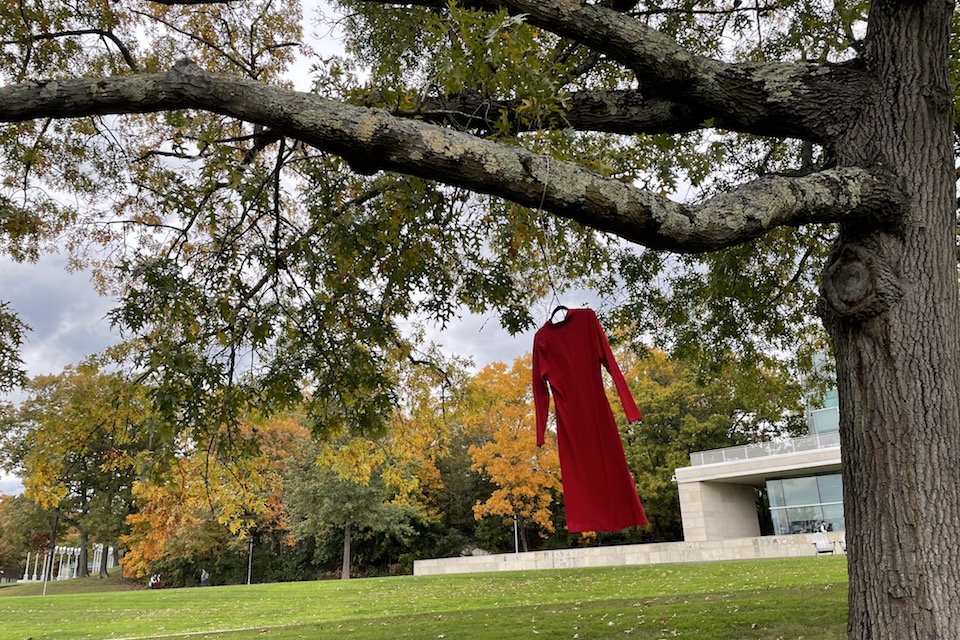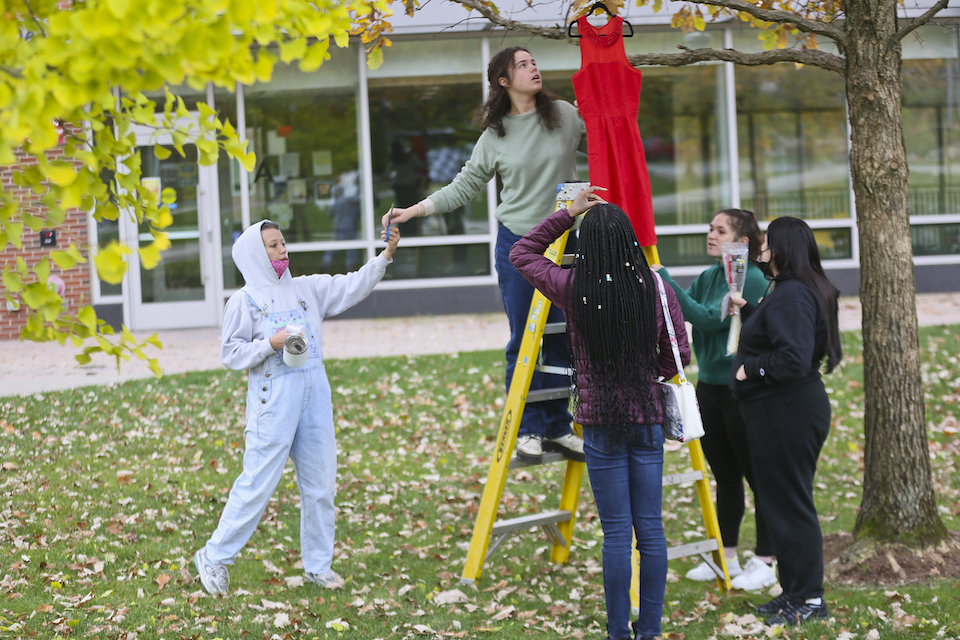If you see an empty red dress on campus, this is why
 Photo/Mike Lovett
Photo/Mike LovettA dress that's part of The REDress Project on the Brandeis campus.
Maybe you've noticed them around campus. Bright red dresses hung on branches with the fall foliage, twisting in the wind.
Spotting one can be jarring. Discovering what it symbolizes may stop you in your tracks.
"When someone discovers what these visually compelling dresses symbolize, the vestments suddenly become incredibly urgent," said Toni Shapiro-Phim, associate professor of creativity, the arts, and social transformation and assistant director of the program in peacebuilding and the arts at the International Center for Ethics, Justice and Public Life.
The dresses are part of The REDress Project, an art installation by Canadian-based artist Jamie Black that calls attention to the thousands of missing and murdered Indigenous women in North America
The REDress Project has been displayed across Canada and the United States, including at the National Museum of the American Indian in Washington, D.C.
Black is a multidisciplinary artist of mixed Anishinaabe and Finnish descent who inspires dialogue around social and political events and issues, particularly issues in feminism and Indigenous social justice.
At Brandeis, the REDress Project is a collaboration between Black and students in Shapiro-Phim’s course, Introduction to Creativity, the Arts, and Social Transformation. Students have met with Black virtually during the fall semester, identified locations for the dresses and installed them, developed accompanying materials, and worked on other aspects of this undertaking.

Students in Introduction to Creativity, the Arts, and Social Transformation hang a dress on campus.
It is the second year in a row that Shapiro-Phim's CAST students have engaged directly with an artist doing socially transformative work. Last year, the course partnered with playwright Catherine Filloux.
"I've seen the difference it makes when students interact directly with someone who is an accomplished, thoughtful artist, engaged in ethical ways in trying to make the world more peaceful, more just," she said. “They have an opportunity to appreciate and learn from not only the artwork, but also the artist’s way of being in the world.”
The REDress Project will be at Brandeis through November, and between us will be on display until Feb. 25.
Categories: Arts, Humanities and Social Sciences, International Affairs, Student Life





